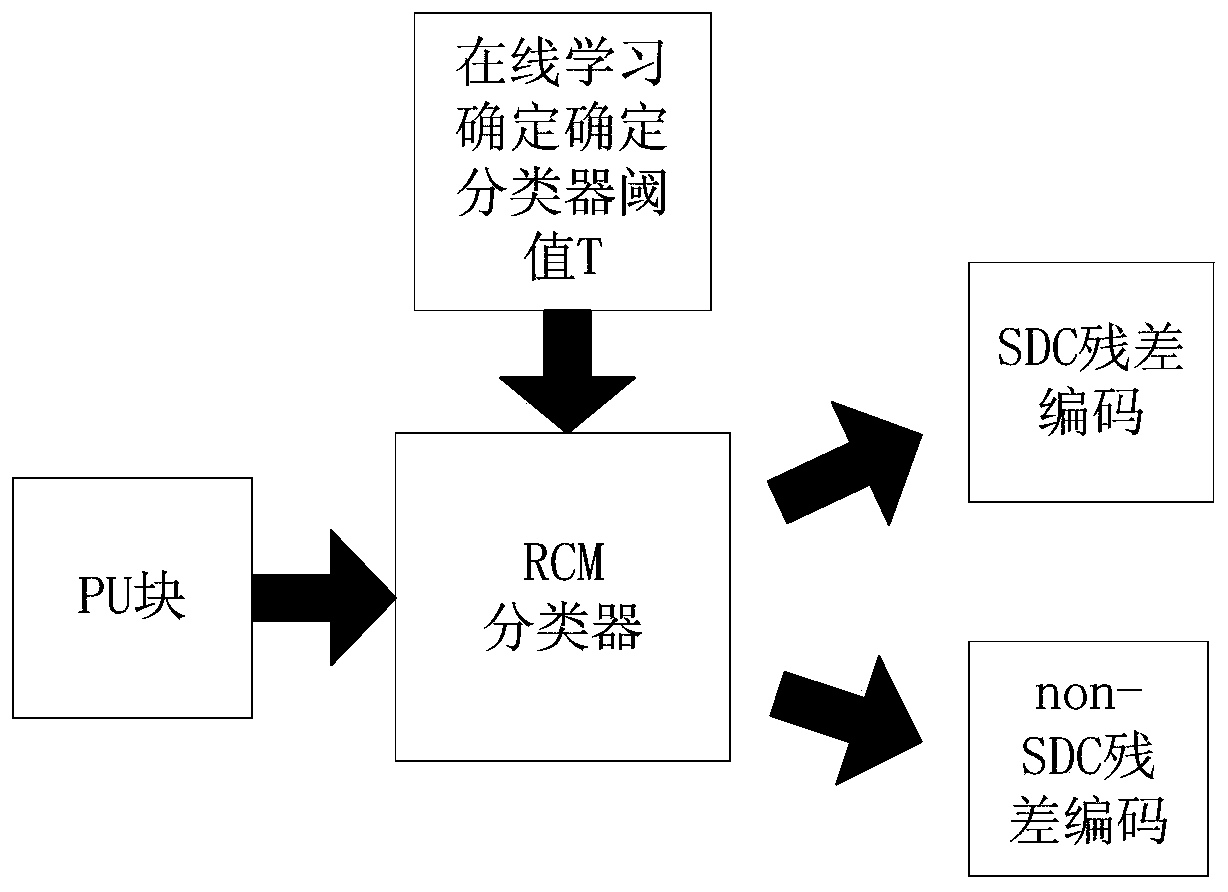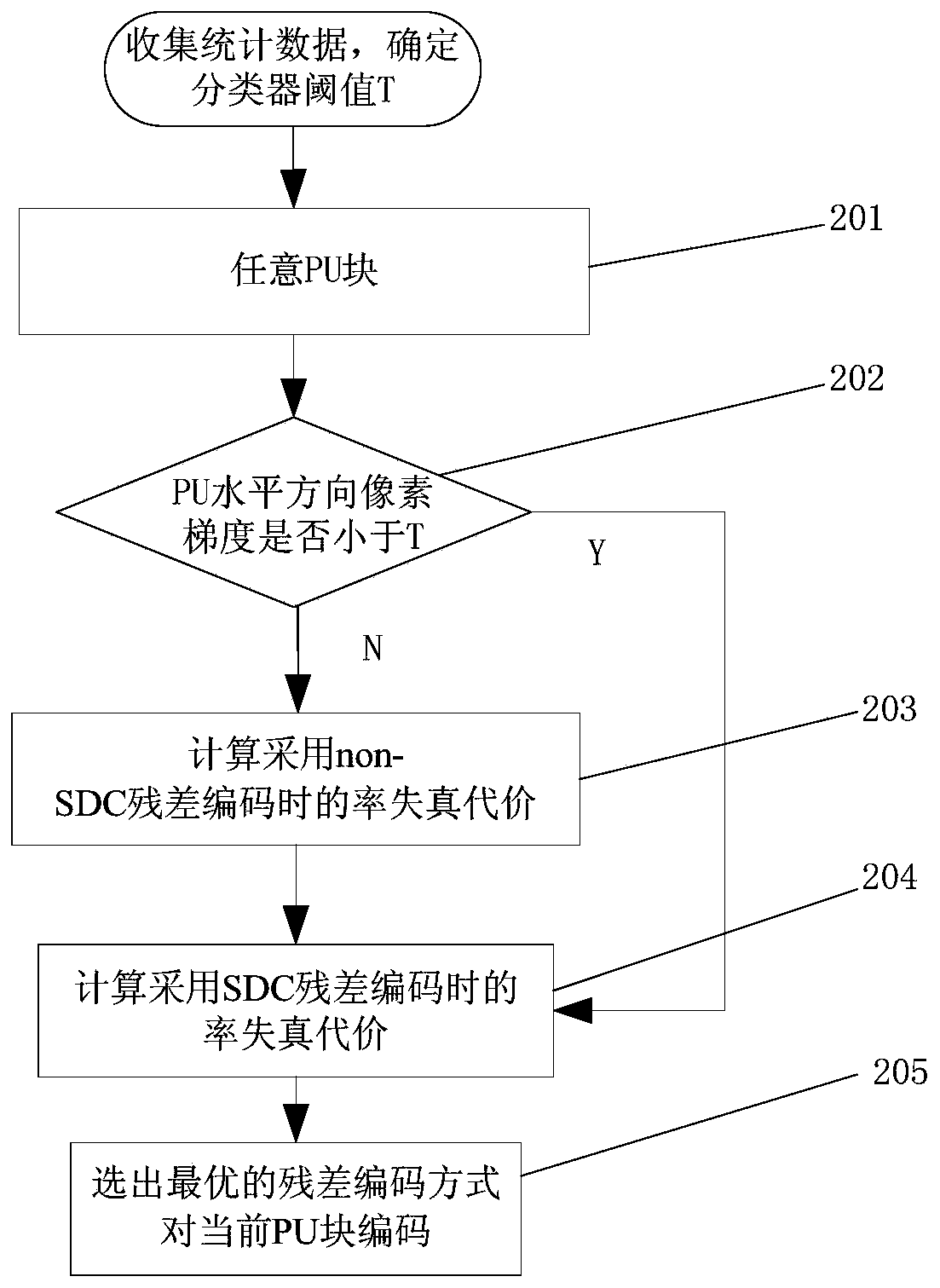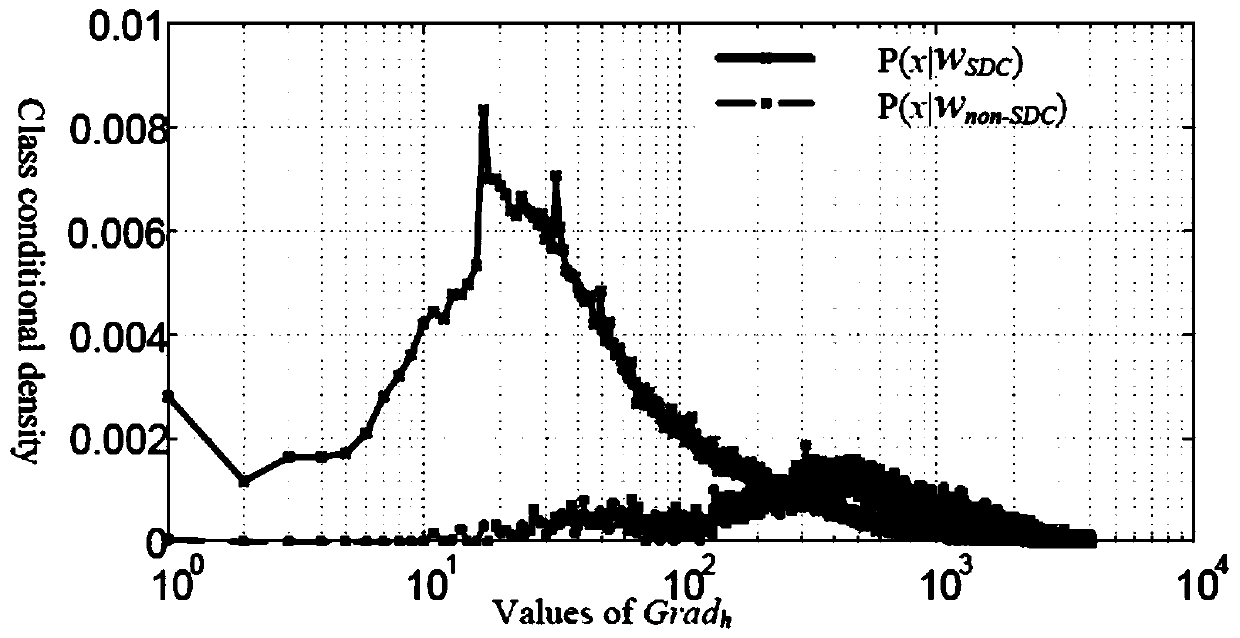A 3D video residual encoding mode selection method with smooth texture information
A coding mode and residual technology, applied in the field of video coding and decoding, can solve problems such as time consumption, and achieve the effect of improving speed, preserving boundaries, and ensuring video quality
- Summary
- Abstract
- Description
- Claims
- Application Information
AI Technical Summary
Problems solved by technology
Method used
Image
Examples
Embodiment 1
[0057] In order to make the object, technical solution and advantages of the present invention clearer, the present invention will be further described in detail below in conjunction with the examples.
[0058] In the embodiment of the present invention, the performance of the proposed 3D video depth image residual mode selection method is verified in the reference software HTM-13.0 of 3D-HEVC, and the application coding parameters use common detection conditions (CTC), Figure 4 is the depth map and texture map of each reference video, where (a1)~(g1) is the reference video texture map, (a2)~(g2) is the depth map corresponding to the reference video texture map (a1)~(g1):
[0059] Video sequence resolution: 1920x1088, 1024x768.
PUM
 Login to View More
Login to View More Abstract
Description
Claims
Application Information
 Login to View More
Login to View More - R&D
- Intellectual Property
- Life Sciences
- Materials
- Tech Scout
- Unparalleled Data Quality
- Higher Quality Content
- 60% Fewer Hallucinations
Browse by: Latest US Patents, China's latest patents, Technical Efficacy Thesaurus, Application Domain, Technology Topic, Popular Technical Reports.
© 2025 PatSnap. All rights reserved.Legal|Privacy policy|Modern Slavery Act Transparency Statement|Sitemap|About US| Contact US: help@patsnap.com



